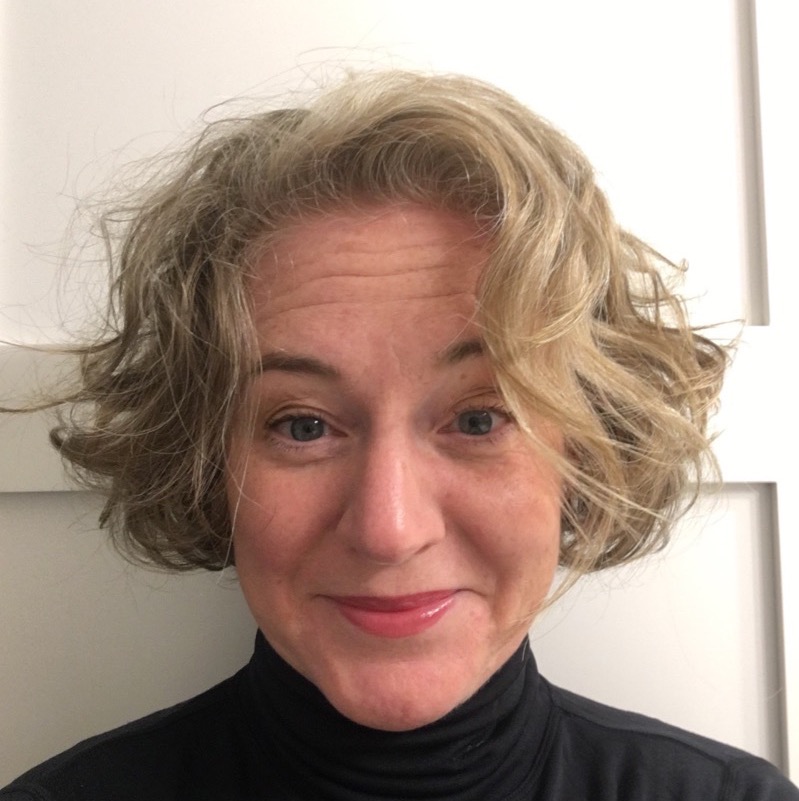Spotlight: Laurie Healy - Recovery Coach Removing the Stigmas of Substance Abuse
So I thought coming on Swell and having her talk about this and hearing her passion behind this, and maybe you're dealing with somebody that has a disorder, maybe somebody struggling with substance abuse. Everybody seems to know somebody who knows somebody

Laurie Healy
@Laurie · 3:12
As a family member, you're not really sure how to navigate it, and you're constantly second guessing yourself and your decisions. But anyway, when that actually happened with my brother and we lost him, it just really made me look at the situation we were in as a family and thinking about how so many other families were either currently walking through that or had also lost a loved one
And the thing that really kind of strikes me is that maybe these family members are just so ill equipped to handle something like addiction, or at least that's the way they feel they don't know it. They haven't experienced it, and they really don't understand it. And I can see that a lot of family members may want to think of rehab as this black box where they just push the person in and they come out cured and they don't have to deal with it again

Laurie Healy
@Laurie · 3:46
And that just comes through really understanding how to live according to your values, how to set healthy boundaries within the context of the relationship that you're struggling with it. And also, as I mentioned, really just understanding the neuroscience behind addiction. Understanding more about the disease is also really helpful, and we can certainly go into more of what I practice with the families when I'm helping them deal with it. Bye
And it seems like we could all be better communicators of this disease, recognizing it, offering help, asking how people are doing. I know people that have addiction in their families, and I'll ask about the family member that I know is having issues. It's an issue of asking just knowing that I'm here, should they want to talk about it? I don't always get anything, but yeah, fine. He or she is fine
I know it's not going to work for everybody. And what role is that going to have an addiction, especially something like with alcohol? If you could share some of the results of that. And just what your take is on how we should be watching mental health awareness not only for ourselves but for our coworkers and our employees and how that fits into addiction. I think it's an important message, and I think you're curve on your thinking here on this

Laurie Healy
@Laurie · 4:03
When the stakes are high, the emotions are strong and the opinions are or can be different. And we see this a lot within addiction and the conversations that are going on with our family. And so it's important that we understand how to be a safe space for the people that we love so that we can continue to build the relationship that we have with them. We look at things around. How do we set healthy boundaries to keep us safe?

Bowie Rowan
@bowie · 3:40
And one of the ways that I have dealt with it is just by trying to read and continue to learn. And one of the pieces of research that I came across a few years ago, I believe originally in an Atlantic article, but I know that I've seen a couple more articles elsewhere is the argument that addiction should actually be categorized as a learning disorder

Laurie Healy
@Laurie · 3:19
It's a disease of the brain. And there's some really interesting research as it relates to neuroscience that goes a little bit deeper into this. In fact, I've been able to find some really great videos and research on YouTube that specifically talks about neuroscience and the disease of addiction. So I love that you also are trying to read more about this and learn about it because I think that's one of the best ways that we, as humans, can start to better understand it

Bowie Rowan
@bowie · 4:11
Anyways, there's so much in this article that I think you might find compelling. So I will link it here. And then I'm also going to link an article that goes more specifically into addiction as a learning disorder, which is by another journalist, and that journalist actually has a history themselves with addiction and then became someone deeply into researching the neuroscience and reporting on it so that people would better understand what we do and don't currently know about it as a disease and or learning disorder

Bowie Rowan
@bowie · 0:38
And then this is just the link by the writer who has focused specifically on addiction as a learning disorder. This writer has also actually done a lot of research and some really interesting work for The Atlantic that is talking specifically specifically about the link between ADHD and autism spectrum disorders and addiction. And it's really fascinating. So I just wanted to mention that too, in case it's of interests to you. Thank you so much again for this really invigorating and beautiful conversation

Laurie Healy
@Laurie · 2:22
So really, to get at the heart of the addiction, you have to take a look at what's behind it. And is there any trauma that needs to be addressed in order to find better healing? Anyway, I thought it was just a really good article, and I'm so glad you shared it. And then a question I would have for you or anybody else listening is for you in terms of your own recovery from a family perspective

Bowie Rowan
@bowie · 4:36
And looking back, I have the knowledge and understanding now that it was mostly like cognitive behavioral therapy style, and for those of you potentially listening, if you're not familiar with that, that kind of therapy tends to focus a lot on your thoughts and thinking patterns and reframing your thoughts. So cognitive stuff. And it really actually wasn't until the last four years I had taken a break from any kind of treatment or help because I felt like it wasn't working honestly. And I was really frustrated
